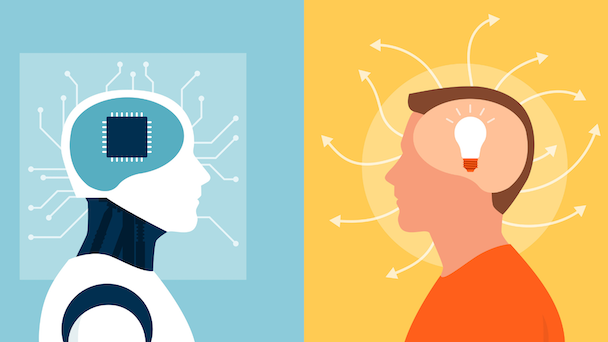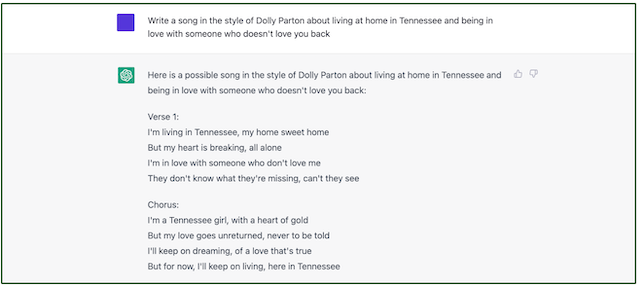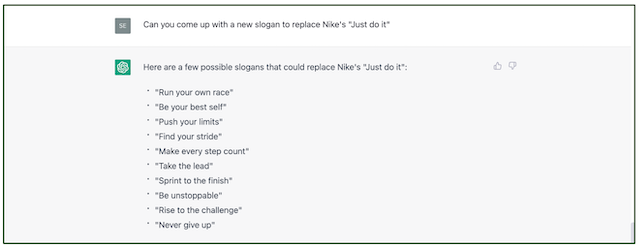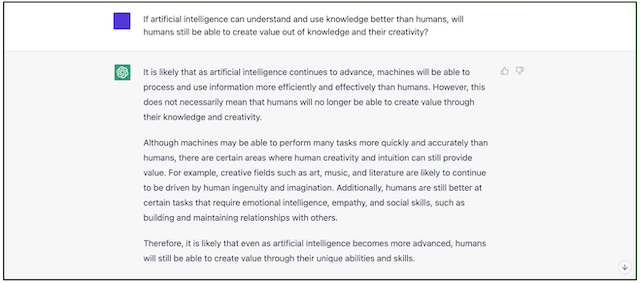Don't worry, ChatGPT won't soon replace human creativity
Even ChatGPT, which has captured the latest hype in generative artificial intelligence, can't compete with raw human creativity, argues Ogilvy Consulting’s Carla Hendra.

/ Adobe Stock
There’s a line in the 1995 drama Braveheart in which Mel Gibson faces his troops and reminds them: “They can take our lands, but they can never take… our… freedom!”
But there’s a similar sentiment that talented creative minds should keep in mind, as the annual threat of human-supplanting artificial intelligence (AI) once again is hitting headlines. Because no matter how often techies and TikTokers try to tell us otherwise, the truth is simple: Machines can never take... our... creativity!
Advertisement
This year, the latest threat is ChatGPT, a generative artificial intelligence language program created by OpenAI designed to engage with users in natural, human-sounding conversation and develop novel answers to even highly-detailed inquiries.
Upon its unceremonious beta release, people everywhere began the debate on the potential for abuse and disruption. How will teachers get students to write their own papers, when ChatGPT can spit one out in seconds? How will knowledge workers and creatives be able to command a living wage for their work, when AI can devise new campaign ideas or write a perfectly serviceable operating agreement?
It’s a quick jump then to the death of human knowledge and creativity as a ‘thing’ – something fundamental about humanity being pushed to the brink of irreversible change or loss by an app.
Before I went any further down that rabbit hole, I thought I’d put ChatGPT to the test myself and see what it can do.
Advertisement
Well, we should believe some of the hype about ChatGPT. The communication is almost flawlessly human. And like many forms of automation, the program does certain operations better and faster than humans.
I started by asking ChatGPT simple Ask Jeeves-era questions, like “Who won World War II?” On this level, it essentially behaves like a nicer, streamlined search engine.
Then I asked it to flex its creative muscles and write a song in the style of Dolly Parton.

Frankly, it was better than a song I could have written in 30 seconds (although I’m not a songwriter so not sure that’s saying much). But impressive.
I got closer to the creativity as we might think of it in the marketing business, when I asked it to devise new brand lines for Nike – something iconic enough to replace ‘Just Do It.’

The responses were bad. Really bad. Derivative, cliché, stale and juvenile. (As was the response when I next asked ChatGPT to explain why these were good ideas).
Finally, before I signed off, I asked ChatGPT the trillion-dollar question itself:

Fairly disappointing. And the result of the database only reflects data through 2021, which was before ChatGPT was launched. No matter how good the AI, if the data is incomplete or wrong, it can’t always produce a strong answer.
The worry that AI spells doom for creators and knowledge workers misses a few critical points about how human beings use knowledge and how we make meaning from it – in essence, how creativity works.
Artificial intelligence is indeed artificial, in the most basic sense of the word: it’s created by human beings. The best ChatGPT can do is spit out existing knowledge – knowledge that took humans thousands of years to acquire and a few decades to plaster all over the Internet.
What it can’t do is interpret that knowledge in ways that speak to us emotionally or persuasively. Nor can it contextualize anything it presents with credibility.
Machines can imitate the behavior of human brains because brains are, in large part, highly complex machines. Language, memory and learning are structured, repeatable algorithms in our big, gray, mushy brains already. Coding them into AI is an impressive technical feat, but the logic behind it shouldn’t come as a surprise.
Accessing information and formulating knowledge are not the same as applying it. Anyone can buy the requisite textbooks needed to build rockets, but few have the stamina, mechanical genius and interpretive ability to craft one in the real world. Making meaning from knowledge takes time, practice, experience and skill. That’s why we don’t generally teach children calculus, even when they can read all the necessary letters and numbers (unless they are especially prodigious).
Communicating knowledge and thought creatively, on the other hand, requires instinct. One thing AI can’t do, by definition, is imitate the unconscious, animalistic side of our brains – the non-intelligent intelligence. This is the territory of the irrational and subconscious. It’s the empathy mechanism that would have us side with people who look like us, even when they’re in the wrong; it's the skeptical impulse, which prompts us to ask of any knowledge we encounter: “Who is telling me this and why should I believe them?” It’s also the side of us that can be emotionally moved by the source and context of information. The platitudes of the ChatGPT’s Dolly Parton song were a clever technical trick, but they were meaningless because I couldn’t instinctively hear or imagine where they came from.
The ancient Greeks had this codified as effective rhetoric, dividing what they saw as logos, ethos and pathos, or reason, character and emotion. AI has yet to prove that it can code emotion, character and personality to actually persuade anyone of the human logos it’s learned to imitate.
ChatGPT may be able to answer some questions on marketing segmentation in a rapid, helpful way – but it is unlikely to come up with the next ‘Just Do It.’ Context, heart and originality count in creativity.
The creators of this sophisticated technology have achieved something brilliant. But they haven’t ended humanity’s defining and most valuable achievements: knowledge and art. We can ask our machines to play with these and imitate us as much as they want. But they’ll never be better at being us.
And even if they were, who would slavishly listen to a program we created versus ourselves? And if AI can make a perfect copy of the Mona Lisa, are we going to prefer staring at it on a screen instead of going to the Louvre?
ChatGPT is a mechanism that redefines how we access information. AI will undoubtedly transform how we access information and what we’re able to do with it – and on what timescales. This can be groundbreaking for how we work.
Advertisement
So, if our creators and knowledge workers can access baseline information and outputs like a Dolly Parton song or a new contract, then good for them! Let’s see what they can create off the back of that. Whenever we increase access to the same basic material, it only raises the bar for the most talented, persuasive minds out there with something original to share.
So my prediction for 2023 and beyond isn’t about dealing with how AI may destroy creativity. Instead, I believe AI will actually unleash creativity in ways never possible before – that there will be a new creativity in scale, scope, speed and, hopefully, in quality.
And if you’re not buying any of this from me, just go ask ChatGPT yourself:

Carla Hendra is global chief executive officer at Ogilvy Consulting.